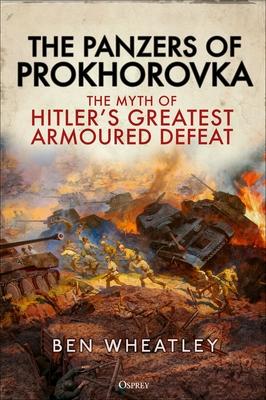This ground-breaking new study of the battles of Kursk and Prokhorovka will transform our understanding of one of the most famous battles of the Second World War, widely mythologized as the largest tank battle in history.
'If ever there was a time for a sober, authoritative dissection of the myths the Soviets fashioned from the Eastern Front, it is now.' - Oliver Moody, Berlin Correspondent for The TimesToday in Russia there are three official sacred battlefields: Kulikovo, where the Mongols were defeated in 1380; Borodino, where Russian troops slowed Napoleon's Grande Arme before Moscow in 1812; the third is Prokhorovka. This is widely described as the most critical tank battle of the Second World War, which saw the annihilation of Hitler's elite Panzer force in the largest armoured clash in history and left Hitler with no alternative but to halt Germany's offensive against the Kursk salient. Victory, on 12 July 1943, at Prokhorovka over Hitler's vaunted SS troops has traditionally been described as a turning point in the Second World War. The Panzers of Prokhorovka challenges this narrative. The battle was indeed an important Soviet victory, but a very different one to that described above. Based on ground-breaking archival research and supported by hitherto unpublished images of the battlefield, Ben Wheatley argues that German armoured losses were in fact negligible and a fresh approach is required to understand Prokhorovka. As we reach the 80th anniversary of the battles of Kursk and Prokhorovka in 2023, The Panzers of Prokhorovka tackles the many myths that have built up over the years, and presents a new analysis of this famous engagement.
